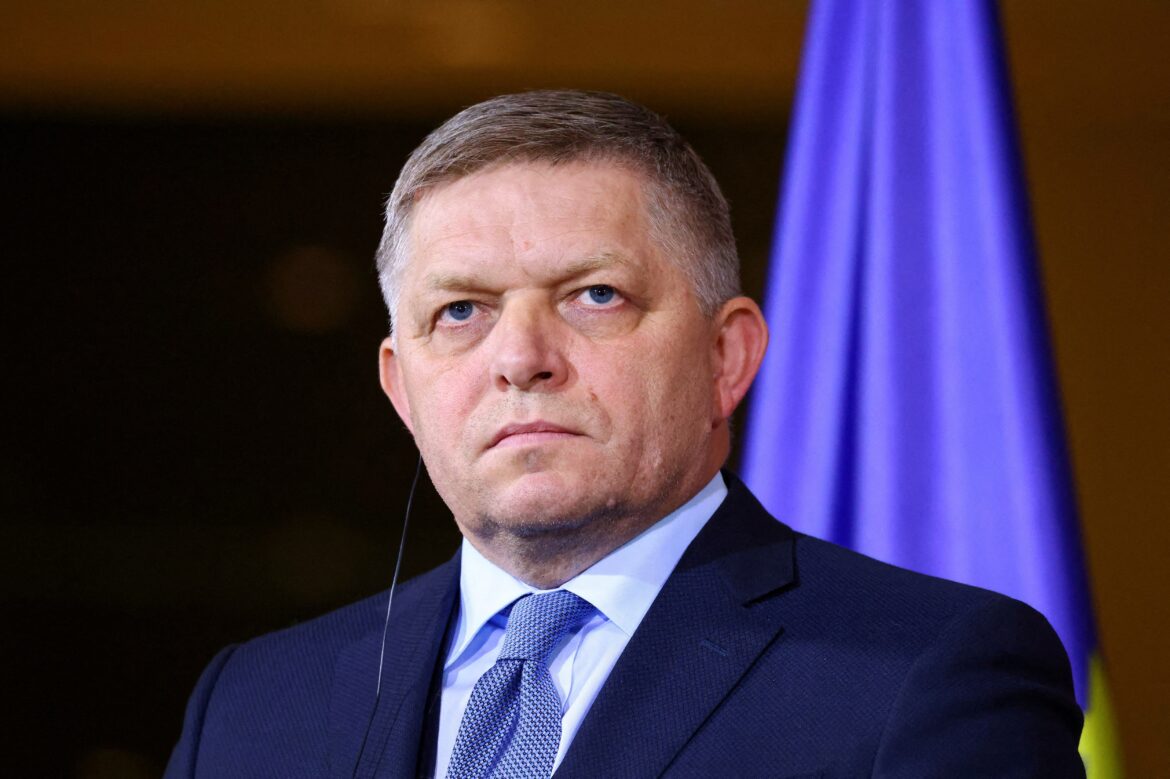By Shelton Muchena, in England
In a dramatic escalation of political rhetoric, Slovakia’s Prime Minister Robert Fico has raised eyebrows and concerns within both domestic and international spheres by threatening to withdraw Slovakia from key alliances such as the European Union (EU) and NATO. His remarks, delivered during a press conference that gathered significant media attention, underscore a growing sentiment of discontent regarding Slovakia’s position in global geopolitics and the perceived shortcomings of these alliances in safeguarding national interests.
Fico, who leads the pro-Russia political party Direction – Social Democracy (Smer), remarked, “It is true that the EU and NATO are our vital space, but no one will prevent us from warning Slovakia about various risks.” He further elaborated on his concerns, citing the shifting geopolitical landscape marked by Russia’s ongoing aggression, the energy crisis stemming from the conflict in Ukraine, and rising tensions between the West and several authoritarian regimes around the globe. His statements come amidst an increasingly polarised regional environment, where countries like Slovakia find themselves walking a tightrope between Western alliances and growing ties with Eastern powers.
Slovakia, a landlocked country located in Central Europe, joined NATO in 2004 and became a member of the EU in the same year. These alliances have been viewed as essential for maintaining the country’s security and stability in a region once overshadowed by conflict and division. The Czech-Slovak relations, stemming from the split of Czechoslovakia in 1993 and subsequent integration into Western institutions, have underlined Slovakia’s commitment to European unity However, Fico’s populist rhetoric taps into a burgeoning desire among certain factions of the population for a reassessment of Slovakia’s international affiliations.
Within Slovakia, Fico’s statements have sparked intense debate among both political circles and the public. Opposition parties, including the liberal Progressive Slovakia and the center-right Ordinary People and Independent Personalities (OĽaNO), condemned the Prime Minister’s stance, arguing that his approach jeopardises national security and could lead to isolation. “Slovakia cannot afford to step back from the alliances that protect our sovereignty and guide our development,” stated Veronika Remišová, the vice-chair of OĽaNO.
Conversely, Fico’s base has responded with enthusiasm. Many citizens disillusioned by the EU’s handling of economic policies, energy releases, and migration issues find resonance in Fico’s critique. He has called for an open dialogue about Slovakia’s place in the EU and NATO, advocating for a more nationalistic approach, which promises increased emphasis on local governance over supranational regulations.
The ramifications of this potential shift extend far beyond the borders of Slovakia. Should Fico follow through with his threats, it could set a dangerous precedent for other nations in the region. Analysts warn that a Slovak exit from the EU and NATO could embolden other populist leaders across Central and Eastern Europe, leading to a domino effect that undermines the very foundations of European unity and security.
Foreign leaders have expressed concern over Fico’s destabilising rhetoric. European Commission President Ursula von der Leyen, during a recent meeting with Slovak officials, emphasised the importance of collective security and solidarity within the European framework. NATO Secretary-General Jens Stoltenberg also reinforced the alliance’s commitment to its members, warning against the pitfalls of isolation and the dangers of underestimating external threats
As Slovakia stands at a crossroads, Fico’s decisions in the coming months will be pivotal in determining the nation’s future on the global stage. Continuing to play to nationalist sentiments while navigating international expectations will prove challenging. The Prime Minister stated he intends to initiate a series of consultations with citizens, emphasising the need for transparency in discussing Slovakia’s international alignment and forging a path forward.
“The world is changing, and so must we,” Fico concluded during his statement. “Slovakia deserves a future where it is respected and secure, and we must consider all options to ensure this.”
In a world increasingly shaped by uncertainty and persistent threats, the fate of Slovakia hangs in the balance, caught between a history it cannot afford to ignore and an uncertain future it strives to shape on its own terms. As the international community watches closely, will the coming months prove crucial for Slovakia? Will it choose the familiar alliances that have ensured peace, or will it venture boldly into uncharted territory? Only time will tell.
As Slovakia grapples with these pressing issues, the implications of Prime Minister Fico’s choices will resonate well beyond the borders of this small Central European nation, shaping the contours of regional dynamics for years to come.


